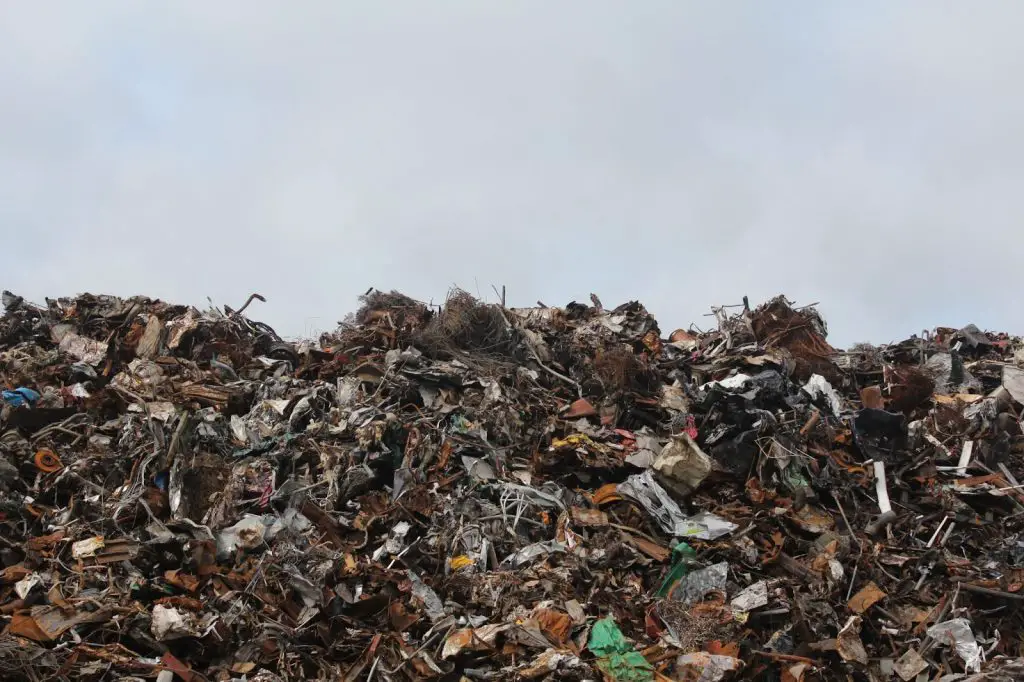This article studies the Highest Paying Chemistry Jobs, so you can learn and earn more.
There is always a chance that experienced chemists can be very well compensated, even though entry-level jobs are often low-paying.
To help you better understand the chemistry profession, we reviewed 100+ salary reports, top sites like the US Bureau of Labor Statistics, and multi-media references.
Here are the top 10 highest-paying chemistry jobs.
Here is a video summary based on this article
Table of Contents
#10. Chemical Technicians
How much do they get paid?
- Source: Salary.com
- Low Range: $42,495 per year
- High Range: $73,100 per year
- Median Pay: $53,853 per year

What do they do?
Chemistry technicians provide support to chemists and chemical engineers by performing routine tests and experiments.
What degrees and skills are usually required?
Most chemistry technicians have a chemistry degree or a bachelor’s degree in a related field, such as biology or environmental science. Employers prefer candidates with previous laboratory experience.
You need to be precise, organized, and detail-oriented. You must always make sure that your equipment is clean and working properly.
Chemical engineers or chemists will prefer to work with technicians who are able to follow directions closely.
Who’s hiring for these jobs?
They usually work in laboratories in industries or research institutions. Some firms may hire technicians out into the field to conduct tests on water or soil.
What’s the best way to get this job?
As with most chemistry careers, you may start by gaining some experience before applying for a chemistry technician job.
Try volunteering at your local hospital or clinic, or contact some research institutions for summer internships.
Should you become a chemical technician?
Similar Articles:
- 10 Highest Paying Chemical Engineering Jobs to Consider
- 10 Highest Paying Dentist Jobs to Consider (no Med Degrees)
- 10 Highest Paying Computer Science Jobs to Consider
#9. Chemistry Teacher
How much do they get paid?
- Source: Zippia
- Low Range: $42,000 per year
- High Range: $73,000 per year
- Median Pay: $55,000 per year

What do they do?
A chemistry teacher is a professional who works with students of different ages in schools and colleges to impart knowledge about the chemical composition of matter.
They are knowledgeable about both physical and inorganic chemistry.
What degrees and skills are usually required?
Most schools require chemistry teachers to have an undergraduate chemistry degree or a related field at a minimum. Some positions may require applicants to have a master’s degree or Ph.D. Besides having good knowledge of chemistry, you should also have strong communication skills and the desire to help others learn.
Who’s hiring for these jobs?
Although some may also teach at colleges or universities, chemistry teachers work in high schools or middle schools.
What’s the best way to get this job?
You can get started on this chemistry career path by searching for jobs on LinkedIn or other job boards. When you get the positions you qualify for, send applications to the hiring departments.
What’s it like to be a chemistry teacher?
#8. Forensic Scientists
How much do they get paid?
- Source: Payscale
- Low Range: $40,000 per year
- High Range: $94,000 per year
- Median Pay: $56,468 per year

What do they do?
Forensic scientists are people who process evidence for criminal cases. They may analyze blood samples, investigate crime scenes, or even reconstruct human remains to help solve a case.
These people are like the modern-day Sherlock Holmes.
If you have watched CSI: Crime Scene Investigation, then you will know what I mean.
What degrees and skills are usually required?
These professionals usually have at least a bachelor’s chemistry degree or a degree in forensic science. Some jobs require a master’s degree.
People who work as forensic scientists also tend to be detail-oriented with strong analytical skills.
After all, these are the people who can give us insights from observing a crime scene or a lab result.
Who’s hiring for these jobs?
Forensic scientists are often employed by law enforcement agencies (like the FBI) but can also work at private labs or universities.
What’s the best way to get this job?
You may consider volunteering at your local police station or applying for an internship with a local crime lab. You can also participate in forensic science competitions and summer camps to get more experience and learn more about the field.
What’s it like to be a forensic scientist?
Similar Articles:
#7. Quality Control Chemists
How much do they get paid?
- Source: Salary.com
- Low Range: $47,927 per year
- High Range: $82,444 per year
- Median Pay: $60,716 per year

What do they do?
Quality control chemists seek to ensure the chemical quality of a product by testing it and analyzing the results.
They are also known as the Quaility Assurance chemists.
Quality control chemists ensure the quality of a product by testing it and analyzing the results. They might do things like test the pH levels of a substance to make sure they are within acceptable ranges or analyze how much of a chemical is present in a product. They also use their knowledge of chemistry to troubleshoot problems with products, and to develop new ways to test and improve product quality.
Quality control chemists play an important role in ensuring that the products we use are safe and effective.
What degrees are usually required?
To become a quality control chemist, you must first earn a bachelor’s chemistry degree. This can take about four years for most students. After that, most employers require at least one year of experience in the industry (although some employers will accept relevant internships instead).
Most quality control chemists also gain professional certification from the American Chemical Society.
Who’s hiring for these jobs?
They find work in many industries, including chemical manufacturing, consumer goods production, pharmaceuticals, and fuel processing.
What’s the best way to get this job?
Job prospects for quality control chemists vary depending on their work industry, but overall, job prospects are average. The best way to get hired as a quality control chemist is to earn an internship with a company you are interested in working for after graduation.
What do Quality Control Chemists do?
#6. Hazardous Material Management Chemist
How much do they get paid?
- Source: ZipRecruiter
- Low Range: $18,500 per year
- High Range: $134,000 per year
- Median Pay: $61,185 per year

What do they do?
Hazardous material management chemists are responsible for ensuring that their company follows the laws, rules, and regulations regarding handling hazardous materials.
These chemists work both independently and as part of a larger team to test, safely store, and dispose of these materials to protect others within the community.
What degrees and skills are usually required?
Employers usually prefer candidates with a bachelor’s degree in chemistry or chemical engineering. Some institutions may require a master’s degree to ensure that candidates have the necessary knowledge base needed to perform the job effectively and efficiently.
These chemists should be able to:
- Perform chemical analysis.
- Comfortably present their findings and recommendations clearly and confidently.
- Effectively communicate scientific data across cultures and with people who do not necessarily have a background in science.
Who’s hiring for these jobs?
These chemistry professionals typically work in manufacturing or waste management facilities, although they may also be found in government agencies or educational institutions.
What’s the best way to get this job?
Get hands-on experience working with hazardous materials in preparation for this type of role. This will also ensure that you have a strong understanding of how these chemicals should be handled when it comes time for you to start your career.
Should you become a hazard materials management chemist?
Similar Articles:
- 10 Highest Paying Engineering Jobs
- 10 Highest Paying Jobs in Agriculture
- 10 Highest Paying Decision Science Jobs To Consider
#5. Chemistry Engineers
How much do they get paid?
- Source: Payscale
- Low Range: $58,000 per year
- High Range: $120,000 per year
- Median Pay: $76,713 per year

What do they do?
Chemical engineers combine their knowledge of chemistry and engineering to design and build chemical processing plants.
They work on a variety of projects, from developing new fuels to improving the efficiency of industrial chemical processes. In many cases, their work is essential to keeping our economy running smoothly.
For example, they might design a new way to make gasoline that is cleaner and more efficient, or they might work on creating new materials that can be used in everything from electronics to construction.
Chemical engineers are also involved in the development of new drugs and other medical technologies. They may design processes for manufacturing pharmaceuticals or developing ways to test the safety and efficacy of potential drug treatments.
In addition to their technical skills, chemical engineers must be able to effectively communicate with other members of a project team, as well as customers or clients who may not have a technical background.
This ability to bridge the gap between science and society is one of the most important aspects of being a successful chemical engineer.
What degrees and skills are usually required?
Most employers require at least a bachelor’s degree in chemical engineering or a related field. Some positions, such as management, may require a master’s degree in a specific chemical engineering field.
You should be able to analyze data and conduct research. Most employers would go for candidates who are able to communicate effectively with others.
Who’s hiring for these jobs?
Chemical engineers work in labs, manufacturing plants, offices, and research centers. They may also find employment in several industries.
What’s the best way to get this job?
You can begin your journey to the top spot by getting the right chemical engineering education and gaining practical experience through internships. Then seeking out employment in hiring companies.
Should you become a chemical engineer?
#4. Analytical Chemists
How much do they get paid?
- Source: Glassdoor
- Low Range: $37,000 per year
- High Range: $185,000 per year
- Median Pay: $82,474 per year

What do they do?
Analytical chemists are scientists who study the chemical composition of various substances. They use specialized equipment to detect and measure the presence of different materials in a given sample.
What degrees and skills are usually required?
These professionals usually have at least a bachelor’s degree in chemistry or a related field such as biochemistry. Some employers may accept an associate’s degree for entry-level positions.
While most analytical chemists have a bachelor’s degree in chemistry, most employers prefer applicants with a master’s degree or Ph.D.
You need to be good at problem-solving. You should also have strong communication skills because analytical chemists must be able to explain their research to others.
Who’s hiring for these jobs?
Analytical chemists may find employment in a wide range of industries, including:
- Pharmaceuticals.
- Food and beverage production.
- Forensics.
- Energy production.
- Environmental research firms.
What is the best way to get this job?
There is no one way to get an analytical chemist position; however, interning with a company that employs these professionals can give you valuable experience and help them break into this field.
What’s it like to be an analytical chemist?
Similar Articles:
- 10 Highest Paying Microbiology Jobs to Consider
- 10 Highest Paying Non-Physician Jobs to Consider
- 10 Highest Paying Healthcare Jobs (that require no Medical degrees)
#3. Organic Chemists
How much do they get paid?
- Source: Glassdoor
- Low Range: $37,000 per year
- High Range: $196,000 per year
- Median Pay: $83,863 per year

What do they do?
Organic Chemists research organic compounds and chemical structures.
These organic chemistry experts investigate the properties of compounds to figure out ways to synthesize them and improve them.
Organic chemist’s roles may include:
- developing and testing new products.
- Creating reports and presentations.
These professionals may use analytical equipment, such as spectrometers to analyze the properties of compounds.
What degrees and skills are usually required?
Most organic chemists have a bachelor’s degree in chemistry or a related field. Employers often prefer candidates with experience working in a laboratory setting.
As an organic chemist, you should be detail-oriented and a precise thinker who can combine theoretical knowledge with practical skills to create new products or processes.
You should also be able to communicate technical information clearly and effectively.
Who’s hiring for these jobs?
- Research institutions.
- Laboratories.
- Manufacturing firms.
What’s the best way to get this job?
You begin by doing an internship with a company that hires organic chemists so you can gain experience working in the field.
Should you become an organic chemist?
#2. Materials Scientists
How much do they get paid?
- Source: Payscale
- Low Range: $58,000 per year
- High Range: $123,000 per year
- Median Pay: $90,000 per year

What do they do?
Materials scientists are professionals who study the structure and chemical properties of various materials, including metals, ceramics, polymers, and composite materials.
They combine knowledge of engineering or physics with chemistry to discover ways to improve these materials to create new types of products or make existing products more effective.
Who’s hiring for these jobs?
Materials scientists typically work in research labs or industrial settings. They may work for government agencies, private companies, or colleges and universities. Some materials scientists may also work as consultants.
What degrees and skills are usually required?
To get a job as a materials scientist, you’ll need at least a bachelor’s degree IN chemistry or engineering. Some companies may prefer a master’s degree, especially if your work involves more advanced research projects.
Common skills required by employers include analytical skills, communication skills (both verbal and written), problem-solving skills, critical thinking skills, and computer skills.
What’s the best way to get this job?
You need experience working with materials to qualify for jobs in this field. Start by applying for entry-level positions.
What’s it like to be a materials scientist?
Similar Articles:
- 10 Highest Paying Environmental Jobs to Consider
- 10 Highest Paying Forestry Jobs to Consider
- 10 Highest Paying Immunology Jobs to Consider
#1. Research Scientists
How much do they get paid?
- Source: Glassdoor
- Low Range: $49,000 per year
- High Range: $196,000per year
- Median Pay: $95,564 per year

What do they do?
Research scientists work in labs, conducting experiments to test theories and develop new knowledge in the science field.
What degrees and skills are usually required?
You need to have a bachelor’s degree in chemistry, biology, computer science, engineering, or another related field. You will also need strong analytical skills and the ability to think critically and creatively.
Who’s hiring for these jobs?
Research chemists typically work for colleges, universities, and private industries.
What’s the best way to get this job?
If you already have experience working in a lab, go ahead and apply to companies needing research chemists. If you’re just starting, look into internship opportunities. Getting your foot in the door is the first step toward getting the job you want.
What’s it like to be a research scientist?
Conclusion
You can now use the information about the highest-paying jobs for chemistry majors to pursue a career move into a lucrative and fascinating area of chemistry.
There is something for everyone, from synthetic chemistry to inorganic chemistry to analytical chemistry.



Helpful.
I’m sorry but I disagree completely about that research scientist background and pay.
They mostly have a PhD because most of the time a master degree knowledge isn’t really enough…
I did a BSc in physics, chemistry and mathematics. And I’m good in chemistry and physics , which job is good for me ?
An Analytical Chemist in Kenya with, seven years plus. Any hiring institution, would be glad.
Thank you for reaching out to us. As an analytical chemist with seven or more years of experience, you bring a wealth of knowledge and skills to the table. Your skills and expertise would be an asset to any hiring institution.
We would recommend you to visit online job portals and search for analytical chemist positions in Kenya. You can also reach out to professional organizations and networks in your field, and inquire about job opportunities.
Additionally, you can also consider creating a professional profile on LinkedIn and use it to connect with potential employers, it will help you to showcase your skills and experiences, and also to find job opening in your field.
We wish you all the best in your job search, and we are confident that with your qualifications and experience, you will find a great opportunity that aligns with your career goals.
I have 13 years experience and I’m willing to take any vacancy available for the job